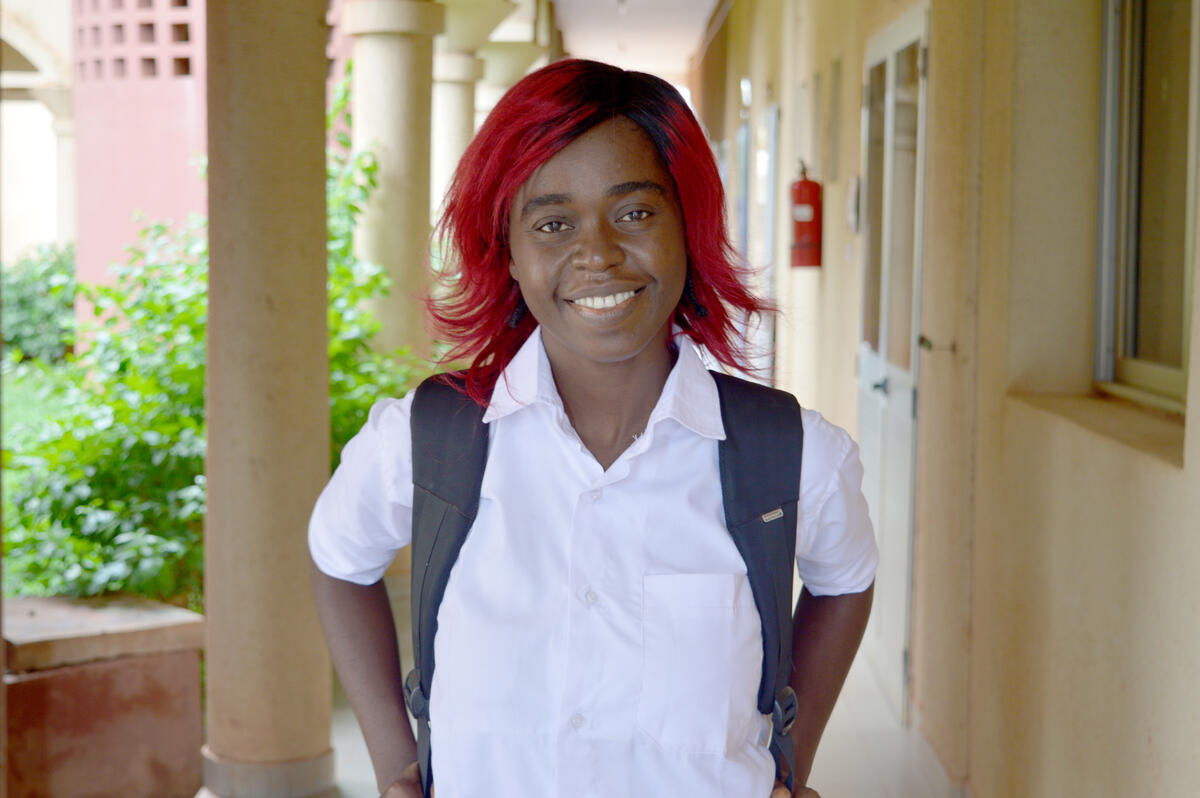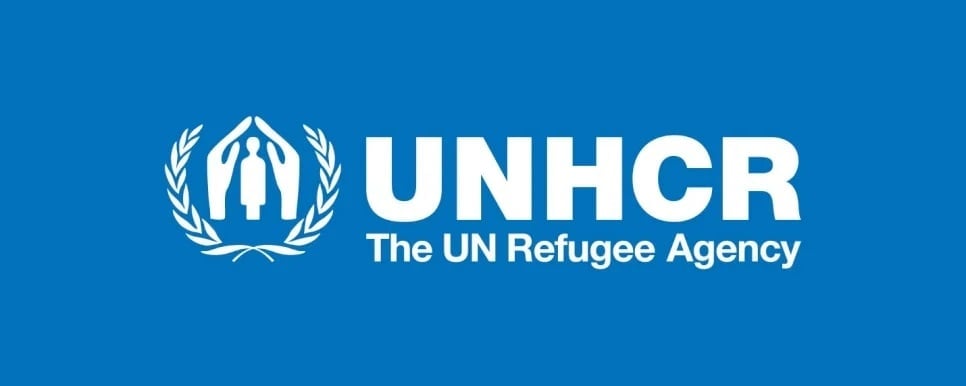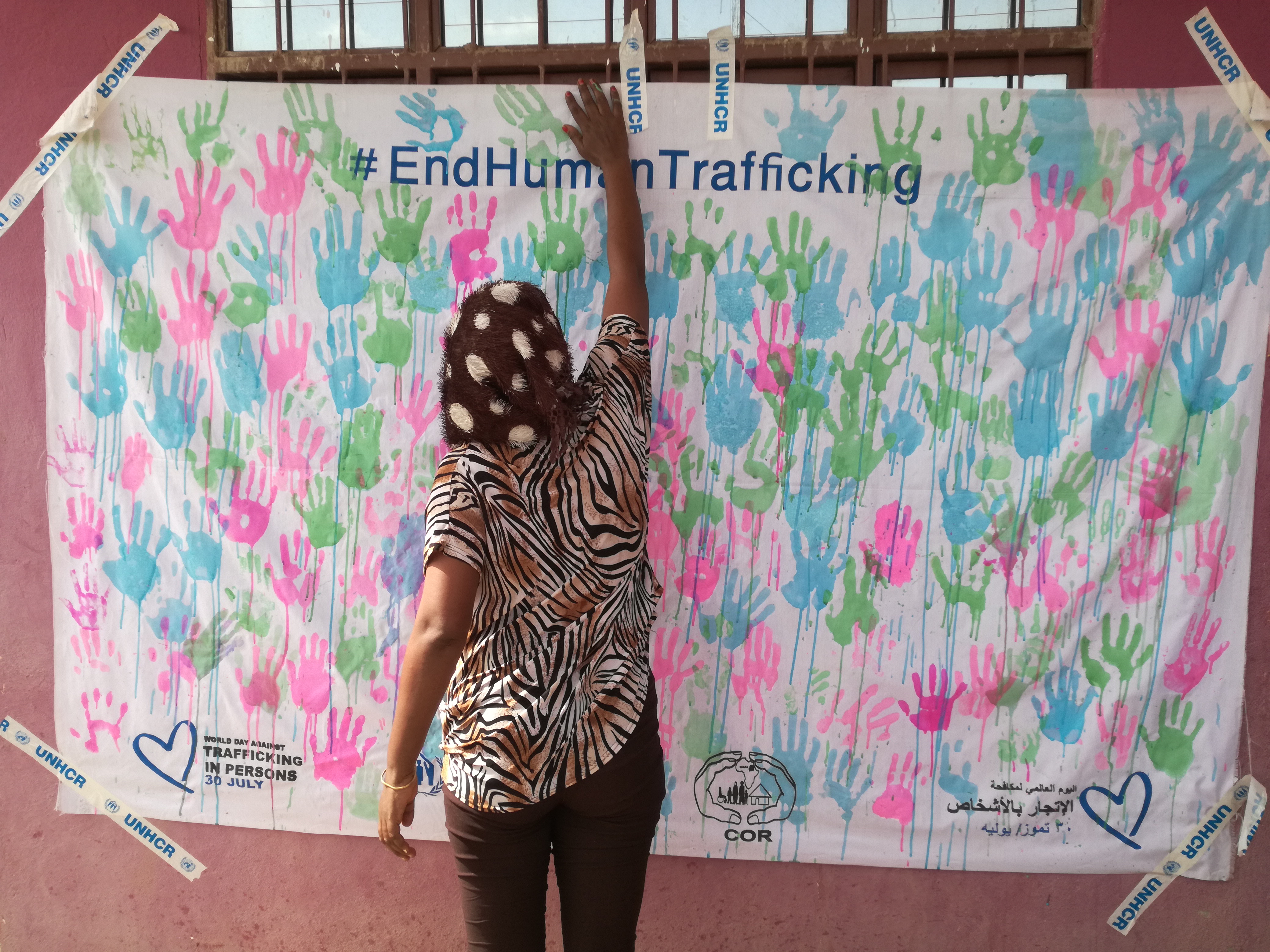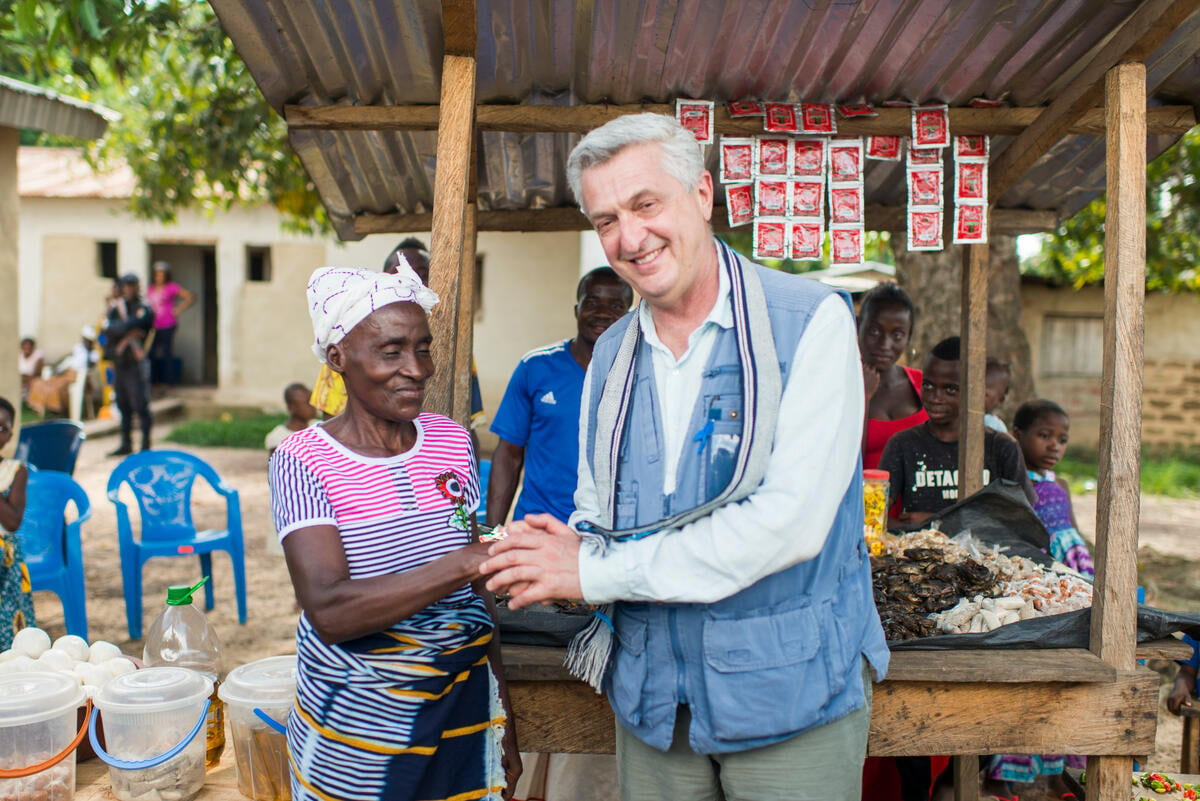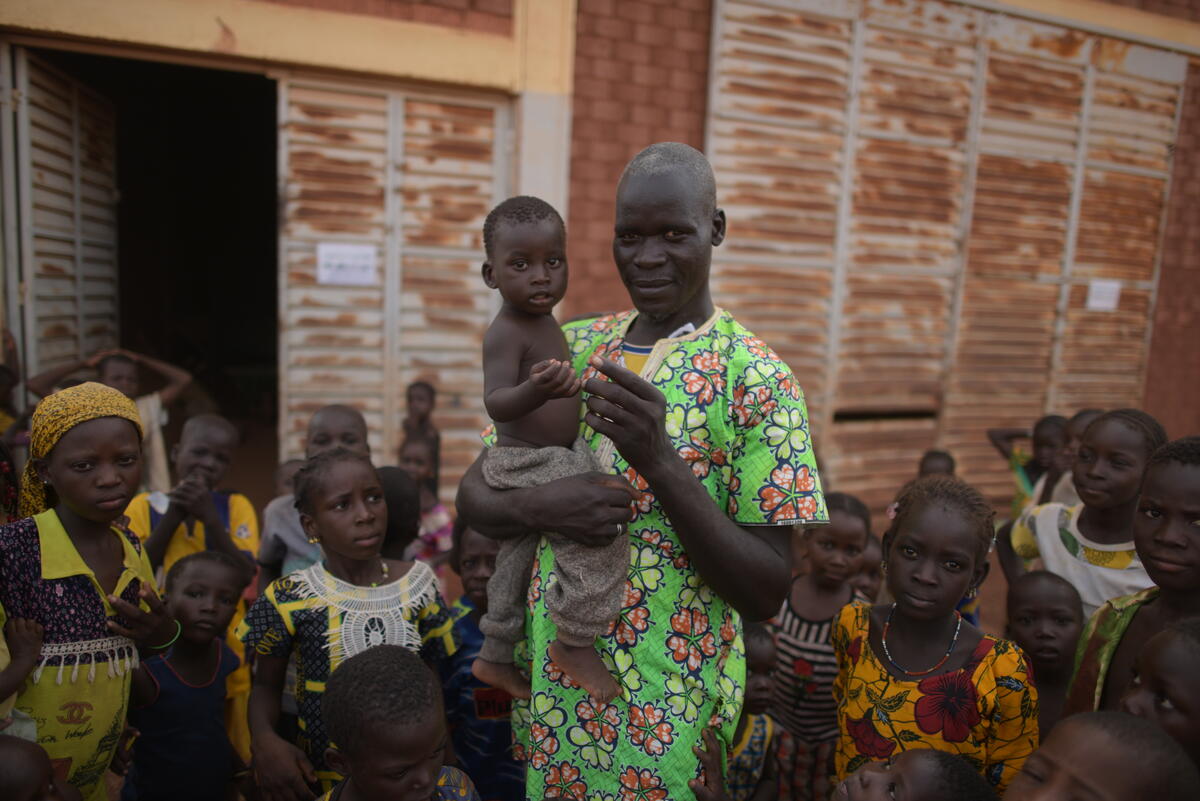Liberia: Lack of security hampers humanitarian operations
Liberia: Lack of security hampers humanitarian operations
Lack of security, law and order in many parts of Liberia is still hampering humanitarian operations in the country. Despite these constraints, UNHCR and its partners continue to work where we can. Following last week's huge displacement along the Totota/Salala road, north-east of Monrovia, some of the relief materials sent by UNHCR trucks in a joint operation on Thursday were distributed Friday by NGO Lutheran World Federation (LWF). Plastic sheeting, high-protein biscuits and water were given to the most needy in Salala 1 camp, where thousands of displaced had taken shelter, as well as along the road leading to the site. Salala 1, previously home to 30,000 people, is now estimated to house over 80,000. Two other NGOs erected additional blocks of latrines in the camp and work has also started at the Salala 2 camp, run by the ICRC across the road.
The exodus continued on Friday, through the weekend and even into yesterday, when a joint UNHCR, OCHA, WFP mission visited the Totota/Salala and Kakata region. They once again came across hundreds of people moving on the road southwards, leaving the town of Todee towards Kakata. Many of the frightened people were believed fleeing because of continuing rumours of fighting, looting or harassment. They try to carry what they can, knowing that anything left behind may be looted. ECOMIL's Guinea Bissau troops started deploying yesterday towards the Totota/ Salala and Kakata region, but will need another few days to reach full deployment. We hope that the displacement can be curtailed as soon as possible and the harassment stopped.
In Buchanan, the port city south-east of Monrovia, security is reported to be seriously deteriorating. So far, no agencies have been able to do any large-scale food or non-food distribution. The population is in desperate need of assistance, but the presence of armed groups, looting and harassing residents, prevents the possibility of any distribution at this stage. The deployment of ECOMIL or peacekeeping troops is urgently needed if we want to stop the already dire humanitarian situation from deteriorating further. UNHCR participated in an interagency mission to the area on Friday. We found that another displaced camp, Brumskine, which had housed more than 3,000 people, had emptied as a result of rebel attacks and looting.
UNHCR is also actively seeking ways to gain access to Ivorian refugees in the east of Liberia. Discussions have been held with MODEL (Movement for Democracy in Liberia) representatives, who have shown a willingness to assist us in providing this access. Options to gain access to the east could include cross-border operations from Côte d'Ivoire, or by boat from Monrovia to Harper. Our office in Tabou, Côte d'Ivoire, has received credible reports from local colleagues who crossed into Harper, that the town has been severely looted. There are also worrying reports of various kinds of harassment and sexual violence. Before the most recent fighting, UNHCR was taking care of over 38,000 Ivorian refugees who fled the war in Côte d'Ivoire.
In Monrovia, meanwhile, we are working with other agencies to facilitate this week's transfer of up to 30,000 displaced persons dispersed in 56 schools and clinics in the town centre, to camps outside the capital, where they will be able to receive regular assistance. We are providing trucks for their transportation and will do the monitoring, passenger lists and look after protection issues. Information campaigns are ongoing to inform the population of the need to empty the schools and clinics - which are obviously needed for other purposes - and return to the camps. UNHCR and its partners will ensure that all services in the respective camps are in place to ensure an appropriate reception. We are also making sure that ECOMIL will extend the security zone as far as the most northern camps - Seigbeh and Ricks - and that military checkpoints are created in these areas to facilitate the return, which should be well advanced by the end of the week.
So far, UNHCR has provided relief material to 10,000 people in two of the eight IDP camps around the capital. On Monday, UNHCR delivered blankets, jerry cans, kitchen sets and mats for 613 families (about 3,000 people) living in Seigbeh displaced camp in the Montserrado area, north of Monrovia. These people had already received shelter material from the ICRC. The UNHCR-chartered MV Overbeck arrived from Freetown last week with more relief material for 3,000 persons.


